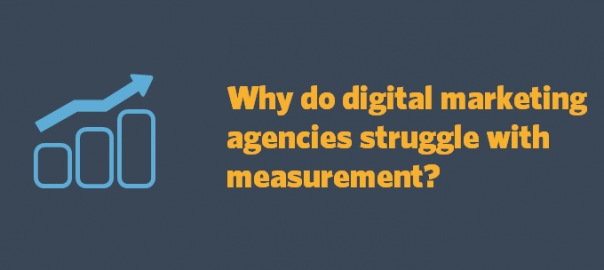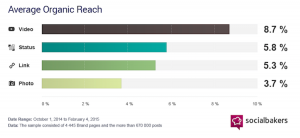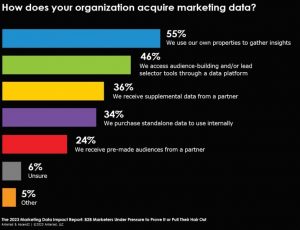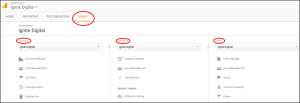
Industry studies over the years have outlined that measurement continues to trouble both clients and agencies. We put this to our panellists during our Growing your digital marketing agency: solving the measurement puzzle webinar. Drawing on their client experience, they suggested some of the primary reasons for this:
Not having time for measurement
Tamara Baranova, who supports a wide range of SME clients, suggested that as long as business owners are maintaining clients and making a profit, they are unlikely to prioritise measurement.
“When you’re managing your own business, there is only so much you can do every day. You’ve got clients to work with, you need to go to networking events, you need to do your book-keeping and accounting and hire and manage your staff. Finding the time and making it a priority to measure and analyse what you’re measuring takes some understanding and education”.
Not knowing what to measure
There is also the situation that clients who are not optimising for SEO or tracking conversions, simply might not realise how valuable a little measurement can be. And even when a company decides to embrace measurement, the subjective nature of measurement planning can stall things. As Tamara says:
“Even when you start measuring, it’s working out exactly what you need to measure and how you’ll collect the data. Business owners look at themselves and say ‘how am I going to do it?’, ‘what tools am I going to use?’”. This can often trigger a Google search for a marketing professional and unfortunately it’s also likely that at this point business owners will cease to explore measurement any further.”
Tamsin Fox-Davies of Constant Contact describes a similar challenge that she’s witnessed among some of their 650,000 small business clients when it comes to measurement. Tamsin refers to this as ‘The Challenge of Overwhelm’ and explains how business owners immerse themselves into Google Analytics and social analytics but quickly retreat in a confused state.
Not understanding what the numbers mean
For those that do immerse themselves in digital measurement, the experience can be bewildering. Many analytic tools such as Google Analytics have become rather complex and it can be difficult to apprehend what the information actually means for their business. Tamara says:
“Understanding the real story behind the numbers that you get every week or every month is crucial for making decisions”.
Not knowing what ‘good’ looks like
While business owners and leaders will understand the language of leads and sales, what about online tracking and conversions? Learning what a good digital funnel looks like for your business is essential, whether it’s via email marketing, web content, search marketing or social media – so explaining what good looks like is often the first challenge for incoming agencies or consultants.
Sean Clark, who has significant experience perfecting conversion funnels for e-commerce clients, offered his recommendation on this:
“If you’re trying to get more leads, then the benchmarks you analyse would be your conversion rate for your landing pages. You can test different types of landing pages and different types of media that will drive traffic to those landing pages. If you want to grow your email list then you could look at how many people join the lists, how many of them convert to become your clients, how many of them opened your emails, how many click links”.
Starting out with unrealistic expectations
Our panellists highlighted what they deemed a common problem, especially among businesses that are new to online marketing: benchmarking again unrealistic or irrelevant ‘competitors’.
Sean Clark offered this warning to anyone expecting overnight success: “I can’t count the number of e-commerce companies that want to be like Amazon or start the next eBay. When they move from offline, a lot of businesses lose all business sense!”.
Getting lost in ‘big data’
The large quantities of data available to digital marketers can be both an opportunity and a complication. It is easy to get lost in the endless possibilities digital and social data has to offer. This can draw the agency into costly and overly complicated analytics. As Tamsin Fox-Davies explains:
“I think some people get a bit data hungry; they start wanting more and more data – like a dragon on a pile of gold. But a lot of the time, you can’t get all of those nuanced insights you think you need. It’s better to pick the one or two pieces of data and work on trying them to your business goals.”
The lure of data and process automation
With easy access to technology and large quantities of data, the aspiration for many businesses is to improve the process of attracting customers, delivering products, taking payments and analysing data into one seamless flow. Sean Clark explained how this might be easier for large organisations but shouldn’t be viewed as an easy option:
“Companies see this massive data that they can suddenly get their teeth into, all these fantastic tools, and before they know it, they’re drowning in it. They’re fiddling around, trying to use the tools and the applications, thinking “we’ll build this framework and it’ll do it all for us!”.
Evidently, there are excellent tools that can be used but piecing together results from several tools can require specialist knowledge and significant expenditure before positive resulted can be expected. Agencies and consultants can prove their value here, not least in settling client expectations.
To read more on the topic of digital marketing measurement, you can download the full version of this free whitepaper.
Digital & Social Articles on Business 2 Community(46)







